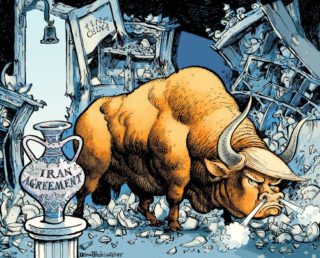Ukraine’s Crimean peninsula, where pro-Russian sentiment parallels suspicion of the Western-leaning interim government in Kiev, has been fought over and occupied and fitted out with garrisons as far back as Roman times in the first century AD. Strategically located between the Black Sea and the Sea of Azov, it was a valuable prize for ancient and modern empires that wanted to control the route for riches of the East – now energy – to make their way to European markets.
The military and commercial competition over Crimea now takes the form of faceoffs between armed Russian loyalists and Russian troops, and a much feebler Ukrainian military. But the political loyalties of the peninsula have long been clear: in the previous Ukrainian presidential election in 2009, the naval port city of Sevastopol voted for Moscow’s ousted ally, Viktor Yanukovych, by a margin of 84 per cent. All of Crimea voted 78 per cent for Mr. Yanukovych, whose score nationally was barely 49 per cent.
The ties to Russia are more than historical and cultural: Russia took possession of the peninsula, the size of Belgium, in 1783. A majority of its population of two million people, 58 per cent, still identifies itself as Russian, although it was handed by Nikita Khrushchev to the Ukrainian Soviet Socialist Republic as a gift in 1954.
There are ties in blood, literally. During the Crimean War in the mid-1800s, when Britain and France fought the Russian Empire over Crimea, an estimated one million Russians died. The cost to both sides was high, and its epic battles involving the British Light Brigade inspired poems that are still read today.
The Second World War brought more horror when Germany attacked. Sevastopol held out for eight months before falling to the Nazis, to be occupied until war’s end. (The war’s misery continued: Muslim Tatars, some of the earliest settlers of the peninsula, were accused by Stalin of collaboration and deported en masse to Central Asia, with nearly half dying of disease on the journey to exile in Central Asia.)
STAFF
The Globe and Mail
Published Sunday, Mar. 02 2014, 9:34 PM EST
Last updated Sunday, Mar. 02 2014, 9:51 PM EST

